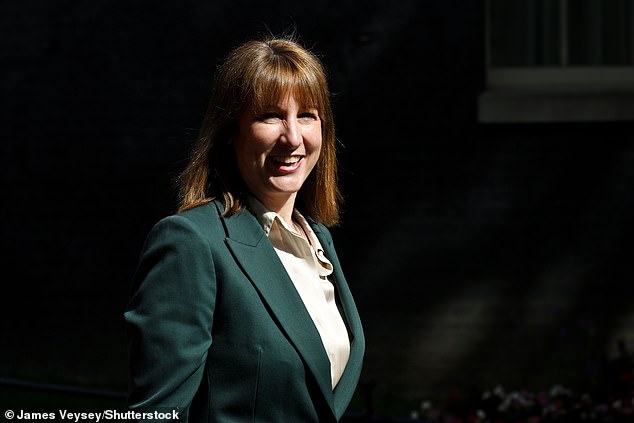Let’s face it, pensions – work pensions, self-invested pensions – are not sexy.
Whenever I mention them to friends over a drink, they look at their watch and say they have a train to catch.
But, make no mistake, they are vital to our long-term financial well-being. Increasingly so as the future of the state pension (and its burgeoning cost to taxpayers) comes under increasing scrutiny.
Nor are pensions easy to understand, thanks in large part to the impenetrable jargon that nearly all providers smother key documents in. Shame on the pensions industry.
But most of us – adults and, for that matter, children – shouldn’t be without one.
Annoyingly, governments also can’t resist using our pensions for their own means, constantly exploring new ways of taxing the pots that we have painstakingly accumulated.
They have been doing it for the three decades or so that I have spent in journalism – and Labour is intent on carrying on with the pillaging.
A tax assault on inherited pensions is under way and trims to both tax relief on contributions and tax-free cash could feature in the autumn Budget.
So far, such cuts have not been ruled out by a Chancellor desperately in search of extra tax revenues, fuelling speculation that they are very much on the agenda.
(Memo to Rachel from Accounts, an avid reader of my page in The Mail On Sunday: ‘If you are not going to do anything nasty to pensions in the Budget, tell us now so we can all stop worrying.’)

A tax assault on inherited pensions is under way and trims to both tax relief on contributions and tax-free cash could feature in the autumn Budget by Chancellor Rachel Reeves, pictured
Yet we mustn’t let regular state pilfering of our pensions deter us from saving for the long term.
It’s essential that we carry on regardless, squirrelling away as much money into a pension as we can afford to.
Sadly, as a result of all these ‘negatives’, pensions for many working in the private sector (as opposed to the public sector where most pensions remain underpinned by taxpayers) have become a financial anathema, especially as far as the young are concerned.
More financial gruel than providing a path towards a retirement awash with milk and honey. Yet, it’s time we as grandparents and parents started to chip away at this anathema by having a conversation with our loved ones about the crucial role pensions play in our journey through life.
Frankly, unless we encourage our grandchildren and grown-up children to put prudence before an impulse purchase made via Klarna, they will hurtle towards a retirement bereft of financial security. None of us would wish that on those we cherish.
Am I being over-dramatic? Alarmist? No. As I said in Wednesday’s Money Mail, a perfect pension storm is heading our way and only we – not government, not employers – can head it off.
To cut to the chase, we need to save far more, even if it means occasionally forsaking the purchase of some of life’s luxuries.
And of course, the earlier we start saving, the better our chances (and those of our children and grandchildren) of enjoying a retirement devoid of financial worry. We have to look towards the future – and not just the here and now.
Despite widespread antipathy towards savers since winning last year’s General Election, the Government is aware of the chronic level of long-term savings in this country.
Last week, it announced the creation of a pensions commission whose mission will be to help design ‘a future-proof pensions system that is strong, fair and sustainable’.
Its launch was supported by a slew of gory statistics confirming how little many of us save for the long term. Among the figures that struck me between the eyes was the 15million workers who face an impoverished retirement unless they start putting more of their earnings into a pension plan.
Also, that retirees in 2050 are on course to receive on average £800 less annual pension income than those retiring today. Frightening.
The Government thinks the commission’s work will ignite a savings revolution and miraculously result in millions of people enjoying a more secure retirement. Yet it’s a ludicrous belief, a pipe dream.
For a start, the Government has already said that for the remainder of the current parliament, it will not be requiring employers to pay more money into workers’ pensions under so-called auto-enrolment rules.
An uptick in employer payments (currently set at 3 per cent and part of an overall minimum contribution of 8 per cent) would have provided a boost to the pension pots of millions of workers.
But having already imposed damaging extra National Insurance costs on businesses from April this year, such a move would have (rightfully) caused an uproar among UK plc.

Have a pensions conversation with children today, tomorrow or next week – and urge them to start saving as much as they can possibly afford to
Indeed, come the next parliament, I doubt whether the appetite among employers for spending more on workers’ pensions will have improved. Resistance will be the order of the day.
As for any recommendations that the commission makes on boosting pension saving, they won’t be published for another two years – and nothing acted upon until 2029 (general election year) at the earliest.
If I were a gambling man, I would bet a fiver on its work being a complete waste of time – and its recommendations left to gather dust.
This leads me on to the state pension. Although Labour has committed to keeping the triple lock for the remainder of this parliament, there is little chance it will survive much beyond 2029, irrespective of who forms the next government.
It’s unsustainable, given the parlous state of the country’s finances and the prospect of them being in an even worse state by the time Rachel Reeves has departed No 11 Downing Street.
The state pension age, currently 66, will also continue to rise with Labour announcing six days ago a review into where it should go from here.
There is every chance that those now in their 30s and 40s will have to wait until their 70s before they receive their first penny of state pension.
Relying heavily upon the state pension is already an almighty challenge for today’s pensioners. But it will be a financial impossibility for our children and grandchildren.
So, please, have a pensions conversation with them today, tomorrow or next week – and urge them to start saving as much as they can possibly afford to.
They’ll thank you one day for such sound advice.












